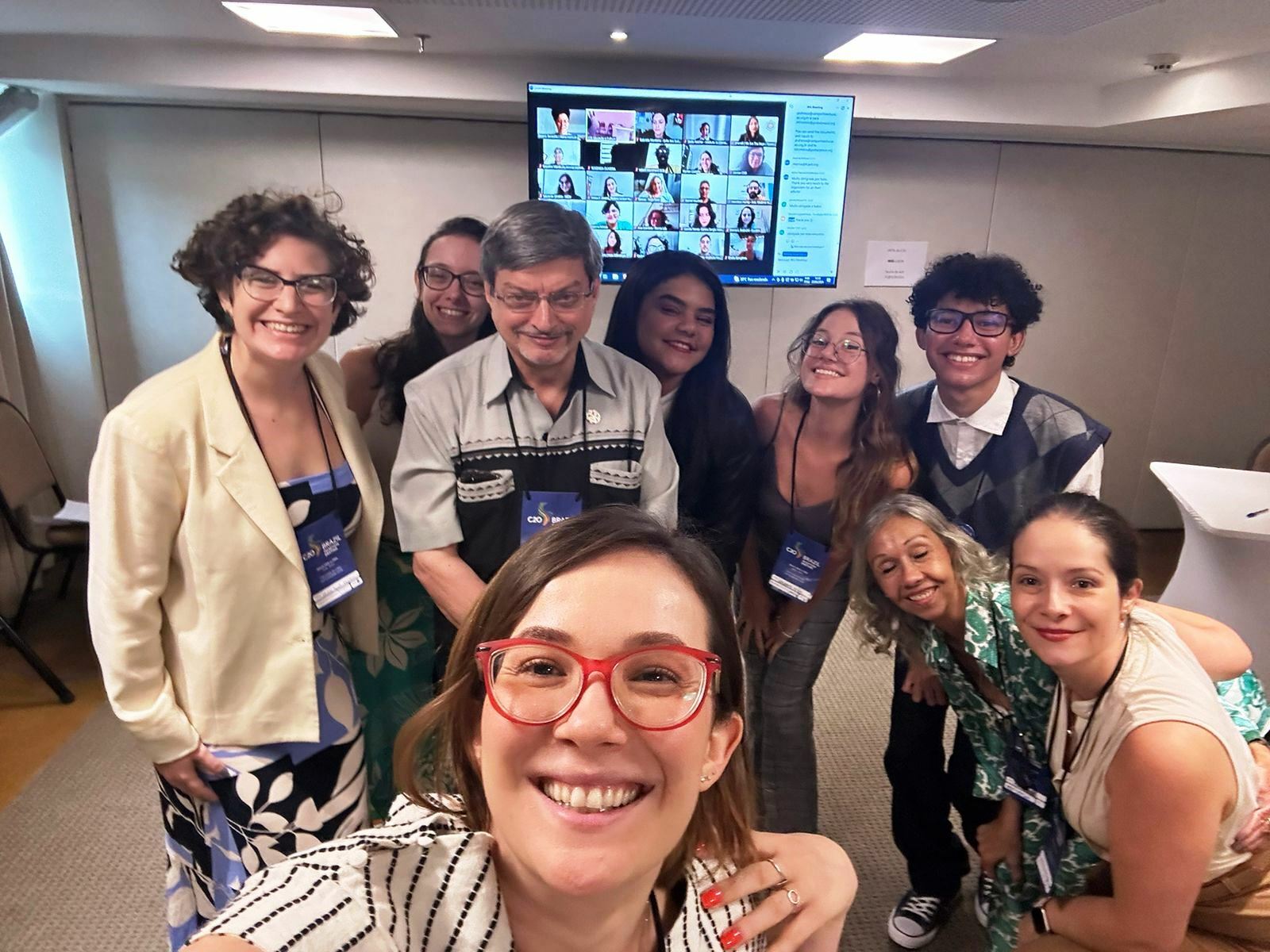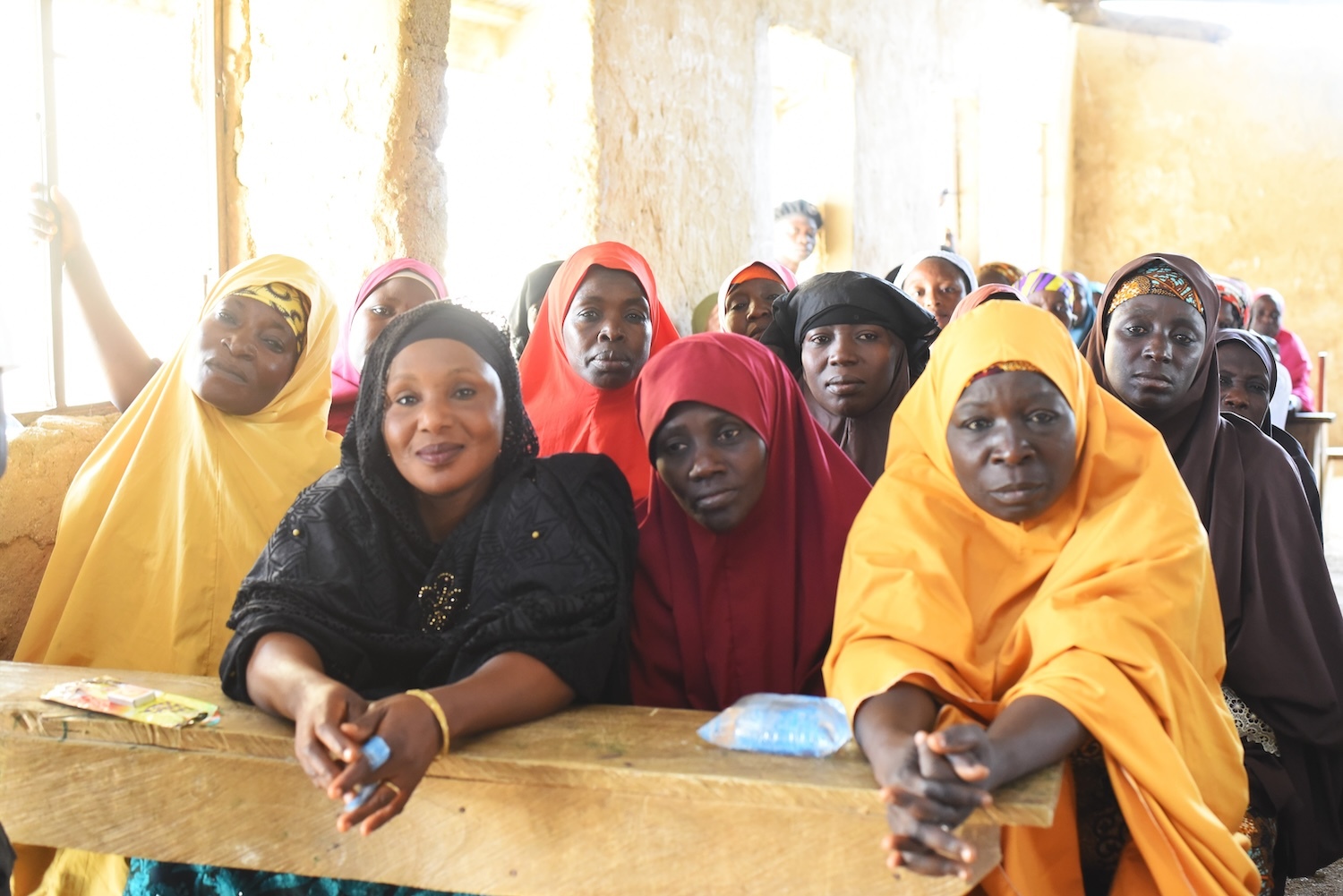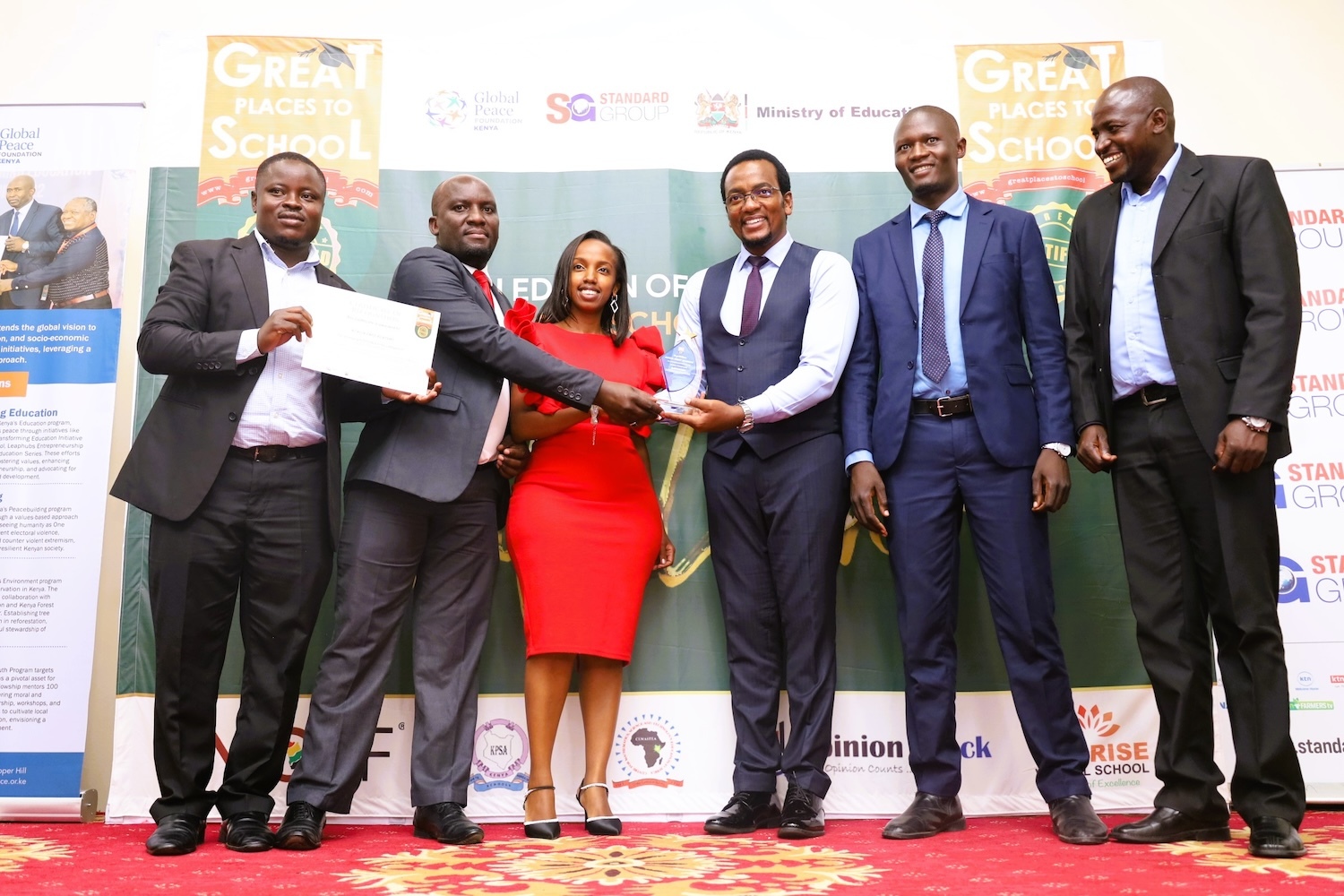Faith Leaders Say Corruption, Ethnic Identity, Wrong Interpretation of Religion are Fueling Conflict
“In June something happened that has never happened,” recounted Reverend Jude Ayodeji Arogundade, Bishop of the Nigerian Catholic Diocese of Ondo, at the International Religious Freedom (IRF) Summit in Washington on June 29. “A group of terrorists came into our church on Pentecost Sunday and killed 41 people, including women and children. On that day our lives changed. In a place of worship they killed as many as possible and just walked away.”
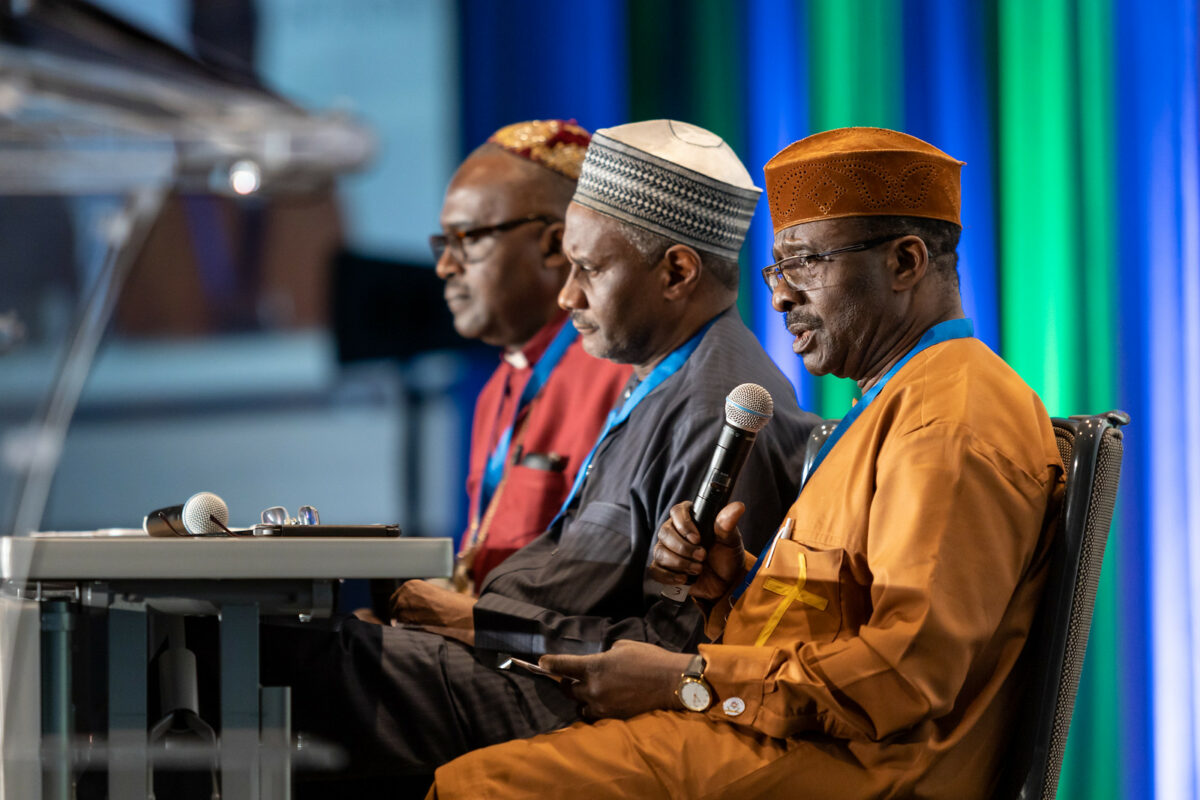
Rev. Ayokunle Samson Olasupo Adeniyi, president of the Christian Association of Nigeria, stresses the importance of education to deradicalize youth in Nigeria. To his right are Prof Usman Yusuf and Bishop Sunday Onuoha..
Bishop Arogundade’s horrific account, the wanton killing of innocent worshippers, was presented in the context of religious repression and persecution found around the globe—by bands of extremists, but also through the direct and indirect sanction of governments from China and Myanmar to Afghanistan and Iran. The IRF summit also detailed increasing restrictions and criminalization of religious expression and practice in western democratic governments, noting that some 80 percent of the world’s population face restrictions and repression on the free exercise of religious faith.
The Global Peace Foundation joined more than 70 international human rights and religious freedom organizations as co-conveners at the International Religious Freedom Summit on June 28-30.
In Nigeria, the Global Peace Foundation has worked for more than a decade to counter extremism and identity-based conflict through grass-roots engagement of Muslim and Christian faith leaders and traditional rulers. Nigerian Christian and Muslim leaders who have worked closely with GPF and its One Family under God Campaign presented sobering accounts of ongoing conflict that target Christian leaders and communities, as well promising advances in areas where extremism and violence have cost lives and disrupted communities.
“Nigeria faces an existential challenge because of the narrow identities of politics, ethnicity, wrong interpretation of religion, and corruption,” said Bishop Sunday Onuoha, Founder and President of Vision of Africa and executive of director of Nigerian Interfaith Action Association.
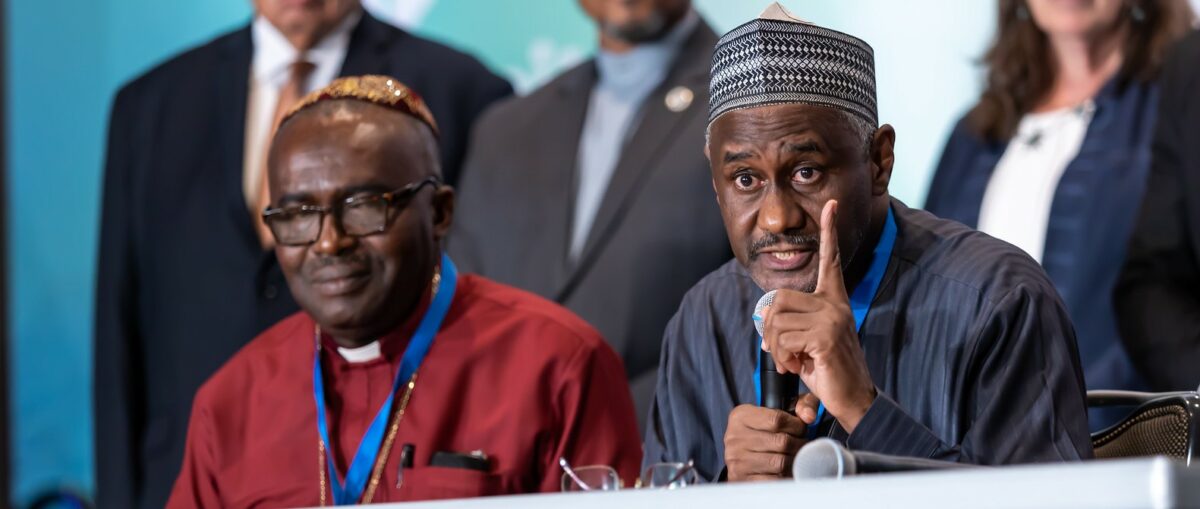
Prof Usman Yusuf, representing the 20th Sultan of Sokoto, said corruption, bad governance, and loss of authority of elders have led to conflict and turmoil in Nigeria. At left is Bishop Sunday Onuoha, Founder and President of Vision of Africa.
Serving as a moderator in a dialogue with Rev. Ayokunle Samson Olasupo Adeniyi, president of the Christian Association of Nigeria; and Prof Usman Yusuf, representing Sultan Muhammadu Sa’ad Abubakar III, the 20th Sultan of Sokoto, Bishop Onuoha urgently called for “leadership with moral authority” and a collective effort to redirect the nation. “We passionately appeal to global community to come to our aid as soon as possible to avoid the imminent danger of the country becoming another humanitarian crisis.”
Addressing the efforts needed to address conflict and extremism in Nigeria—almost equally divided as Muslim and Christian and with a history of amicable relations—Rev. Adeniyi noted the establishment of the Nigeria Interreligious Council in 1999 to foster trust, understanding, and cooperation among leaders of the two majority religions.
“Nigeria faces an existential challenge because of the narrow identities of politics, ethnicity, wrong interpretation of religion, and corruption.”
“One thing we think is very important is religious education, to deradicalize the minds of those who have been radicalized and causing trouble,” he said. “People don’t really understand what their religion is all about. If you don’t know the truth you will believe the lie. So we encourage interreligious education, where Christians learn about Islam and Muslims learn about Christianity.”
“I am a Muslim, I am a Fulani, and I am a very proud Nigerian,” said Prof Yusuf. “I have lived outside of Nigeria longer than lived at home. Home is where I love the most. When I came back home what did I see? A lot more religion than when I left. Churches are bigger. Mosques are bigger. Prayers are louder. Religion was before more personal and less public. We are more judgmental than when I left. We don’t teach history as we used to. I have seen a better, more tolerant Nigeria.”
Prof Yusuf said Nigeria’s 36 states divided into 6 political zones each had unique security challenges from banditry, to insurgency, to piracy. The principal reason for this insecurity, he said, was corruption and bad governance. “What we realize in each zone is that elders have lost control of youth. Elders must get involved. Martin Luther King said violence is language of the unheard.”
A declaration for peace and security
The session concluded with the signing by Nigerian faith leaders of a “Declaration for a Peaceful and Secure Nigeria,” condemning the use of violence and coercion “to spread or hinder political or religious views and identities, or to demean ethnic, regional or tribal affiliations.”
The Declaration called for “a necessary and ongoing dialogue [that] must be inclusive and open to an expanding number of stakeholders to ensure that all voices are heard and government will be based on mutual consensus and respect, as well as protection of individual rights.”.
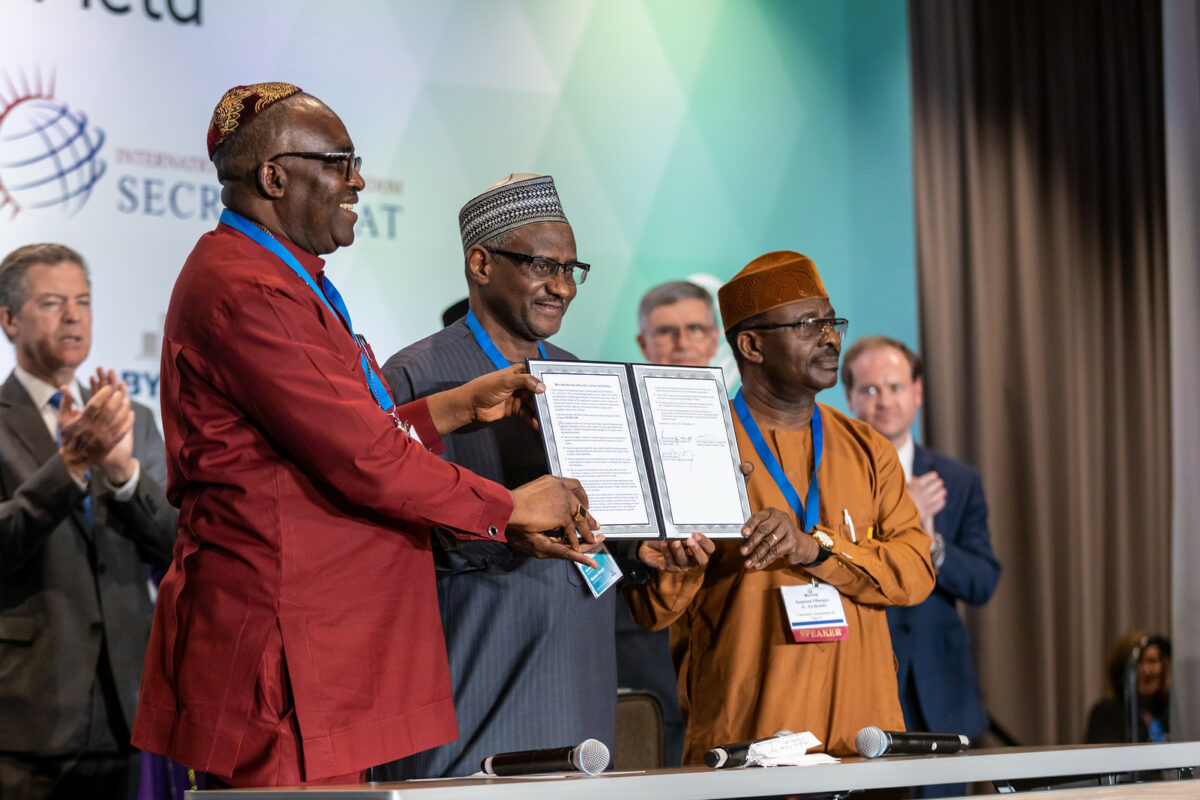
Nigerian Christian and Muslim leaders at the signing of the Declaration for a Peaceful and Secure Nigeria at the International Religious Summit in Washington.
The Declaration was issued as part of an ongoing Inclusive Security Dialogue process engaging diverse stakeholders, with the key leadership of the President of the Christian Association of Nigeria and the Sultan of Sokoto and support from Global Peace Foundation, Vision Africa, and ADF International.
“With your cooperation, prayer, and pressure things can change,” Bishop Arogundade told the international summit. “Use your influence to force Nigerian leaders to take action. With good management and sincere commitment, people can be safe and grow together as a country that the whole world can be proud of.”
To learn more about the Global Peace Foundation’s peacebuilding work in Nigeria, visit Nigeria | Global Peace Foundation.

